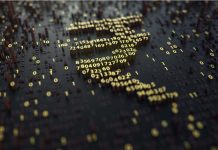The euro jumped higher versus the US dollar as trading opened for the new week. A solid victory by Macron’s party in the French Parliamentary elections boosted the euro U.S. dollar exchange rate to $1.1210 from a close on Friday of $1.1197.
| What do these figures mean? |
|---|
|
When measuring the value of a pair of currencies, one set equals 1 unit and the other shows the current equivalent. As the market moves, the amount will vary from minute to minute. For example, it could be written: 1 EUR = 1.12829 USD Here, €1 is equivalent to approximately $1.13. This specifically measures the euro’s worth against the dollar. If the U.S. dollar amount increases in this pairing, it’s positive for the euro. Or, if you were looking at it the other way around: 1 USD = 0.88789 EUR In this example, $1 is equivalent to approximately €0.89. This measures the U.S. dollar’s worth versus the euro. If the euro number gets larger, it’s good news for the dollar. |
The currency pair continues to trade close to a 7-month high as an increasingly stable picture in Europe offers support to the euro. Meanwhile doubts are growing over the outlook for the U.S.economy which is causing the dollar to decline.
French President Macron’s newly formed political party, La Republique En Marche, together with centrist ally Modem, are set to gain a solid majority in the French Parliamentary elections on Sunday. The two parties secured 350 seats of 577 seats available. The strong victory has cleared Macron’s path to be able to push through his pro-European Union and pro-business agendas. Macron has made it clear that he intends to embark on a programme of reforms to reinvigorate the French economy and to increase the French presence in the EU. Both agendas are considered euro positive.
Firstly, strengthening of the European Union means a eurozone breakup is less likely, which naturally offers support to the common currency. Secondly, any signs of increased economic strength or stability will boost a currency, even if this is anticipated rather than actual.
| Why does economic strength boost a country’s currency? |
|---|
| Solid economic indicators point to a strong economy. Strong economies have strong currencies because institutions look to invest in countries where growth prospects are high. These institutions require local currency to invest in the country, thus increasing demand and pushing up the money’s worth. So, when a country or region has good economic news, the value of the currency tends to rise. |
However, it’s also worth noting that Macron was widely forecast to perform well in these elections, which would explain why any subsequent rally in the near future may be relatively limited.
U.S. dollar demand weak as data continues to disappoint
The mood towards the dollar was low towards the end of last week. The dollar sold off against the euro and other major peers on Friday. An upbeat statement from the U.S. Federal Reserve had boosted the value of the dollar earlier in the week. However, a continued stream of soft data is weighing on investor confidence. Investors are becoming increasingly less confident that the U.S. Federal Reserve will manage one or two more interest rate hikes this year. The week ahead sees plenty of releases from central bank officials, which investors will be watching closel, for any further clues as to when the next rate rise could be.
| Why do raised interest rates boost a currency’s value? |
|---|
| Interest rates are key to understanding exchange rate movements. Those who have large sums of money to invest want the highest return on their investments. Higher interest rate environments tend to offer higher yields. So, if the interest rate or at least the interest rate expectation of a country is relatively higher compared to another, then it attracts more foreign capital investment. Large corporations and investors need local currency to invest. More local currency used then boosts the demand of that currency, pushing the value higher. |
|
This article was initially published on TransferWise.com from the same author. The content at Currency Live is the sole opinion of the authors and in no way reflects the views of TransferWise Inc. |





